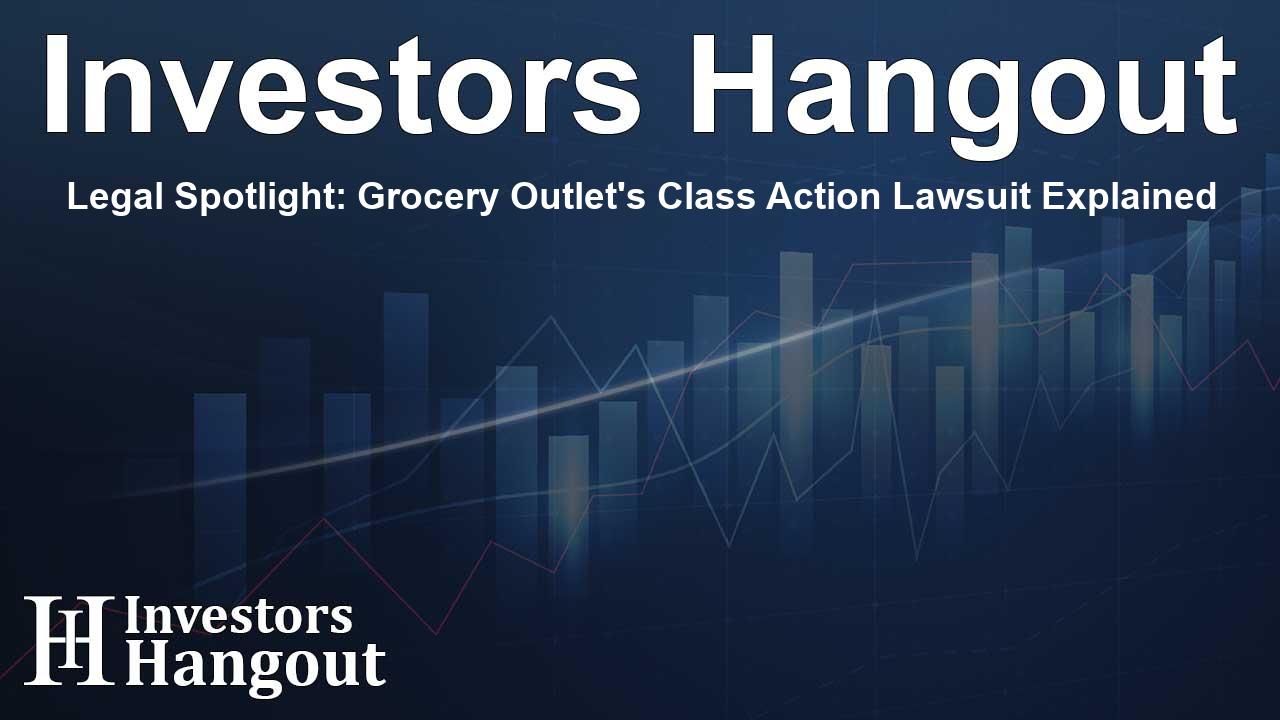Legal Spotlight: Grocery Outlet's Class Action Lawsuit Explained

Overview of the Class Action Lawsuit Against Grocery Outlet
In recent developments, the class action lawsuit against Grocery Outlet Holding Corp. (NASDAQ: GO) has drawn significant attention. This lawsuit, led by Robbins Geller Rudman & Dowd LLP, aims to seek justice for individuals who have incurred substantial financial losses based on misleading statements made by the company's executives.
Key Allegations and Legal Basis
The lawsuit, noted as Liberato v. Grocery Outlet Holding Corp., takes a firm stance against the management of Grocery Outlet. According to the allegations, the executives provided false information regarding the company’s system transition, leading to misconceptions about its efficacy and financial stability. This has become a pivotal point in understanding the legal framework set to hold these executives accountable for their actions.
The Importance of Reliable Information
Transparency is critical for maintaining investor trust and ensuring fair trading practices in the stock market. The complaint outlines that Grocery Outlet’s management provided an inaccurate timeline for the completion of their system updates, greatly underestimating the challenges faced during implementation. These misrepresentations are believed to have contributed to a significant loss in stock value, and they directly impacted investors' decisions.
Recent Developments in the Case
According to the complaint, the situation worsened when, in May, the company announced the negative consequences of the ongoing system transition. By revealing a larger-than-anticipated impact on their earnings and providing below-market guidance for future quarters, the executives catalyzed a decline in shareholder value. This decline, where Grocery Outlet's stock price plummeted over 19%, showcases the potential ramifications of misleading statements.
The Role of the Lead Plaintiff
Investors who suffer losses have an opportunity to become lead plaintiffs in this class action. Under the Private Securities Litigation Reform Act of 1995, individuals who acquired Grocery Outlet stocks during the class period can step forward to represent the interests of all affected investors. This role allows them to direct the course of the lawsuit while working alongside legal teams.
How to Get Involved
For those interested in joining the movement to seek redress for financial damages incurred, it is crucial to gather relevant information and assess eligibility. The opportunity to act as a lead plaintiff is extended to individuals with the most significant financial interest in the case, encouraging active participation.
Grocery Outlet's Business and Market Impact
Grocery Outlet is well-known for offering popular consumables through a network of independently operated stores. Their position in the market enables them to provide a unique shopping experience. However, the recent events surrounding their management's actions have raised eyebrows among investors and consumers alike, prompting calls for increased accountability.
The Importance of Accountability
As this case progresses, it highlights overarching themes of corporate governance, accountability, and investor protection. By addressing these issues, the lawsuit could lead to a broader discussion concerning ethical management practices within publicly traded companies.
About Robbins Geller Rudman & Dowd LLP
Robbins Geller is recognized as a leading law firm specializing in securities fraud litigations. With a reputation for securing the highest settlements for investors, the firm's commitment to advocating for affected parties stands out in the legal landscape. They have a proven track record, having recovered billions for investors, reinforcing their role as a critical player in legal advocacy.
Frequently Asked Questions
What is the Grocery Outlet class action lawsuit about?
The lawsuit alleges that Grocery Outlet management made false statements about a systems transition, impacting investor decisions and stock value.
How can I participate in the class action?
Investors who suffered losses can express their interest in becoming lead plaintiffs by contacting the legal team handling the case.
What does it mean to be a lead plaintiff?
A lead plaintiff represents the collective interests of all investors who have incurred losses due to the alleged misconduct and directs the legal proceedings.
Why is transparency important in corporate governance?
Transparency helps build trust with investors and ensures fair trading practices, which are essential for the stability of the financial markets.
What outcomes can investors expect from the lawsuit?
The outcome may include financial restitution for losses incurred and potentially influence changes in corporate governance practices at Grocery Outlet.
About The Author
Contact Ryan Hughes privately here. Or send an email with ATTN: Ryan Hughes as the subject to contact@investorshangout.com.
About Investors Hangout
Investors Hangout is a leading online stock forum for financial discussion and learning, offering a wide range of free tools and resources. It draws in traders of all levels, who exchange market knowledge, investigate trading tactics, and keep an eye on industry developments in real time. Featuring financial articles, stock message boards, quotes, charts, company profiles, and live news updates. Through cooperative learning and a wealth of informational resources, it helps users from novices creating their first portfolios to experts honing their techniques. Join Investors Hangout today: https://investorshangout.com/
The content of this article is based on factual, publicly available information and does not represent legal, financial, or investment advice. Investors Hangout does not offer financial advice, and the author is not a licensed financial advisor. Consult a qualified advisor before making any financial or investment decisions based on this article. This article should not be considered advice to purchase, sell, or hold any securities or other investments. If any of the material provided here is inaccurate, please contact us for corrections.
